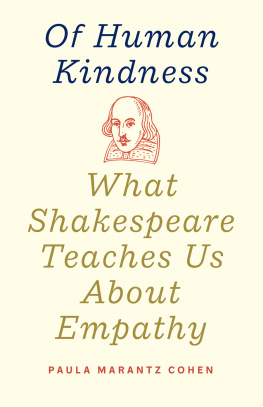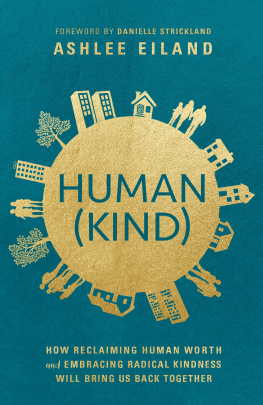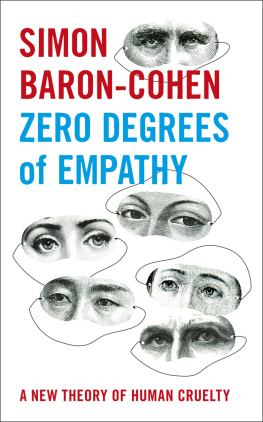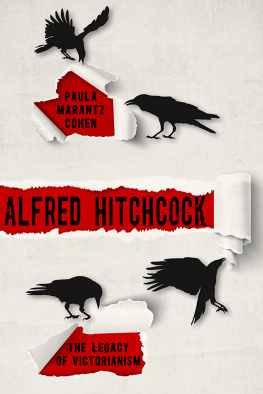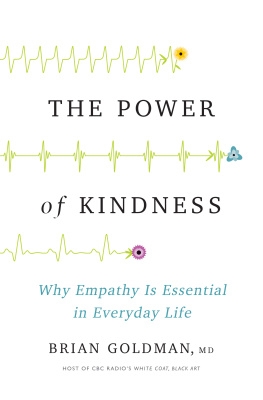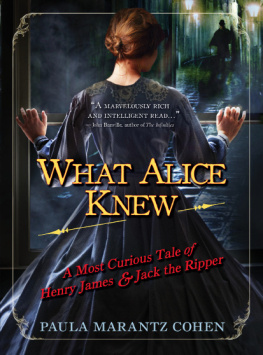Paula Cohen - Of Human Kindness: What Shakespeare Teaches Us About Empathy
Here you can read online Paula Cohen - Of Human Kindness: What Shakespeare Teaches Us About Empathy full text of the book (entire story) in english for free. Download pdf and epub, get meaning, cover and reviews about this ebook. year: 2021, publisher: Yale University Press, genre: Children. Description of the work, (preface) as well as reviews are available. Best literature library LitArk.com created for fans of good reading and offers a wide selection of genres:
Romance novel
Science fiction
Adventure
Detective
Science
History
Home and family
Prose
Art
Politics
Computer
Non-fiction
Religion
Business
Children
Humor
Choose a favorite category and find really read worthwhile books. Enjoy immersion in the world of imagination, feel the emotions of the characters or learn something new for yourself, make an fascinating discovery.
- Book:Of Human Kindness: What Shakespeare Teaches Us About Empathy
- Author:
- Publisher:Yale University Press
- Genre:
- Year:2021
- Rating:5 / 5
- Favourites:Add to favourites
- Your mark:
- 100
- 1
- 2
- 3
- 4
- 5
Of Human Kindness: What Shakespeare Teaches Us About Empathy: summary, description and annotation
We offer to read an annotation, description, summary or preface (depends on what the author of the book "Of Human Kindness: What Shakespeare Teaches Us About Empathy" wrote himself). If you haven't found the necessary information about the book — write in the comments, we will try to find it.
Paula Cohen: author's other books
Who wrote Of Human Kindness: What Shakespeare Teaches Us About Empathy? Find out the surname, the name of the author of the book and a list of all author's works by series.
Of Human Kindness: What Shakespeare Teaches Us About Empathy — read online for free the complete book (whole text) full work
Below is the text of the book, divided by pages. System saving the place of the last page read, allows you to conveniently read the book "Of Human Kindness: What Shakespeare Teaches Us About Empathy" online for free, without having to search again every time where you left off. Put a bookmark, and you can go to the page where you finished reading at any time.
Font size:
Interval:
Bookmark:
Of Human Kindness

Copyright 2021 by Paula Marantz Cohen.
All rights reserved.
This book may not be reproduced, in whole or in part, including illustrations, in any form (beyond that copying permitted by Sections 107 and 108 of the U.S. Copyright Law and except by reviewers for the public press), without written permission from the publishers.
Yale University Press books may be purchased in quantity for educational, business, or promotional use. For information, please e-mail (U.K. office).
Set in Minion type by IDS Infotech, Ltd.
Printed in the United States of America.
Library of Congress Control Number: 2020940167
ISBN 978-0-300-25641-3 (hardcover : alk. paper)
A catalogue record for this book is available from the British Library.
This paper meets the requirements of ANSI/NISO Z39.481992 (Permanence of Paper).
10 9 8 7 6 5 4 3 2 1
For my students
Contents
Preface
The idea for this book grew out of my many years teaching Shakespeare to undergraduates. Most of these students had had limited exposure to Shakespeare and approached the reading without the veneer of knowingness that can stunt new insight. Their open, unbiased response helped me see the plays freshly and discern the pattern of developing empathy that I have come to understand as an important facet of Shakespeares genius.
I began to chronicle my teaching experience in Class Notes, a series of columns in the American Scholar, and in several op-ed pieces for the Wall Street Journal. When these appeared, I was surprised by the many online comments, personal emails, and handwritten letters that I received from readers. Two essays in particularon Shylock as villain and victim in The Merchant of Venice, and on King Lear and agingprovoked a deluge of responses and convinced me to write this book. I hope that my discussion of how Shakespeares greatest characters were built on a learned sense of empathy will be as illuminating and useful for others as it has been for me and my students.

All citations and spellings from the plays are from The Bedford Shakespeare, based on The New Cambridge Shakespeare Edition, ed. Russ McDonald and Lena Cowen Orlin (Boston: Bedford/St. Martins, 2015).
Of Human Kindness
Introduction
I spent my teenage years stretched out on the living room couch reading novelsVictorian triple-deckers with earnest, morally uplifting plots and characters. I could lose myself in these books and make believe that I was one of their virtuous, long-suffering heroines, destined to find my high-minded soul mate at the end. This made me feel secretly vindicated as a superior person and less like the odd and awkward adolescent I was.
I went on to study nineteenth-century literature in college and graduate school, and to teach this literature at a university. It continued to be reassuring for me and for my students to feel we were like the exceptional heroes and heroines in these books and not like the ordinary people who surrounded us. Quite frankly, I was a snob, and I encouraged snobbism in my classroom.
Until I began to teach Shakespeare.
This happened twenty years ago, when the Shakespeare expert at my university retired and I stepped in to replace her. Although I had read the major plays in college and seen numerous live and film productions, I had never studied Shakespeares canon closely. But I was a seasoned teacher by this point, and I knew that not being an expert can have its advantages. It can allow for more openness to others viewpoints and more originality in ones own. I also suspected that I might learn somethingthat my diet of nineteenth-century literature needed to be supplemented by wider and more generous nourishment.
Teaching Shakespeare on a regular basis, I came to appreciate his greatness in a new way. This is not to refute the familiar pronouncements: that Shakespeare is a master of the English language and a superb poet; that his plays contain complex and varied characters; that they are full of clever wordplay, exceptional wit, and laugh-out-loud farce; and that they can be productively parsed using the latest literary and cultural theory. But I came to understand something morenamely, the way Shakespeares characters made me feel, and how feeling that way made me a better person.
I should note that I began teaching Shakespeare at a time when his place in the university was being questioned. He was the product of an entrenched patriarchal society in which women were not allowed to perform onstage. His audience was almost entirely white and Christian. What relevance did he have in a multicultural classroom?
This question was not a theoretical one. My university had undergone a transformation since I began teaching there in 1982. It had evolved from a predominantly male engineering- and business-focused school into a comprehensive institution in which there were now as many women as men. These students were of varied ethnicity, religious affiliation, economic background, and gender identification; my class list reflected the diversity not only of our nation but of our world. Yet Shakespeares plays, written more than four hundred years ago in a closed, homogenous society, spoke to these students in a way that no other work I have ever taught has been able to do.
The insights and range of identification my students derived from the plays astonished meand continues to do so today, more than twenty years later.
The late eminent and erratically brilliant literary critic Harold Bloom asserted that Shakespeare invented the humana reference to the rich interior lives of his characters. What I want to argue here, and what my experience teaching the plays has demonstrated, is that this human dimension also involves an intimate connection to us, who study him. Shakespeare invented complex individuals who elicit empathy, whom we, audience or readers, feel for even when they fall outside the realm of our own experience.
When we think of the emotional effect of great drama, we think of catharsis, the term used by Aristotle to denote the outpouring of emotionof pity and fearthat an audience is supposed to feel at the end of a tragedy. Watching characters brought low by fate and their own shortcomings is supposed to purge us of repressed emotionto cleanse us of the anxiety and sadness that weigh us down. But emotional release of this kind can be isolating and self-indulgent, a way of avoiding responsibility for others suffering. It can make us more complacent about who we are, more able to function smoothly and efficiently in the world as it exists. Empathetic emotion, by contrast, is disruptive. It is a humanizing and potentially instrumental variation on catharsis.
Empathy involves feeling beyond the selffeeling for othersand, at its most extreme, feeling for the Other: the individual whom we are superficially unable to identify with and feel for.and feel for them in their difference. Shakespeares ability to create such characters, comprehensible even when they are unsympathetic and entirely alien to our experience, is reflective of his particular genius.
But what makes my argument so useful is the realization that Shakespeares ability to feel and evoke empathy did not come into being fully formed. He learned empathy for a wide range of human beings not only by living a life that brought him into contact with diverse people but also through the process of writing his plays. Shakespeare grew both more empathetic and better at relaying empathy
Next pageFont size:
Interval:
Bookmark:
Similar books «Of Human Kindness: What Shakespeare Teaches Us About Empathy»
Look at similar books to Of Human Kindness: What Shakespeare Teaches Us About Empathy. We have selected literature similar in name and meaning in the hope of providing readers with more options to find new, interesting, not yet read works.
Discussion, reviews of the book Of Human Kindness: What Shakespeare Teaches Us About Empathy and just readers' own opinions. Leave your comments, write what you think about the work, its meaning or the main characters. Specify what exactly you liked and what you didn't like, and why you think so.

